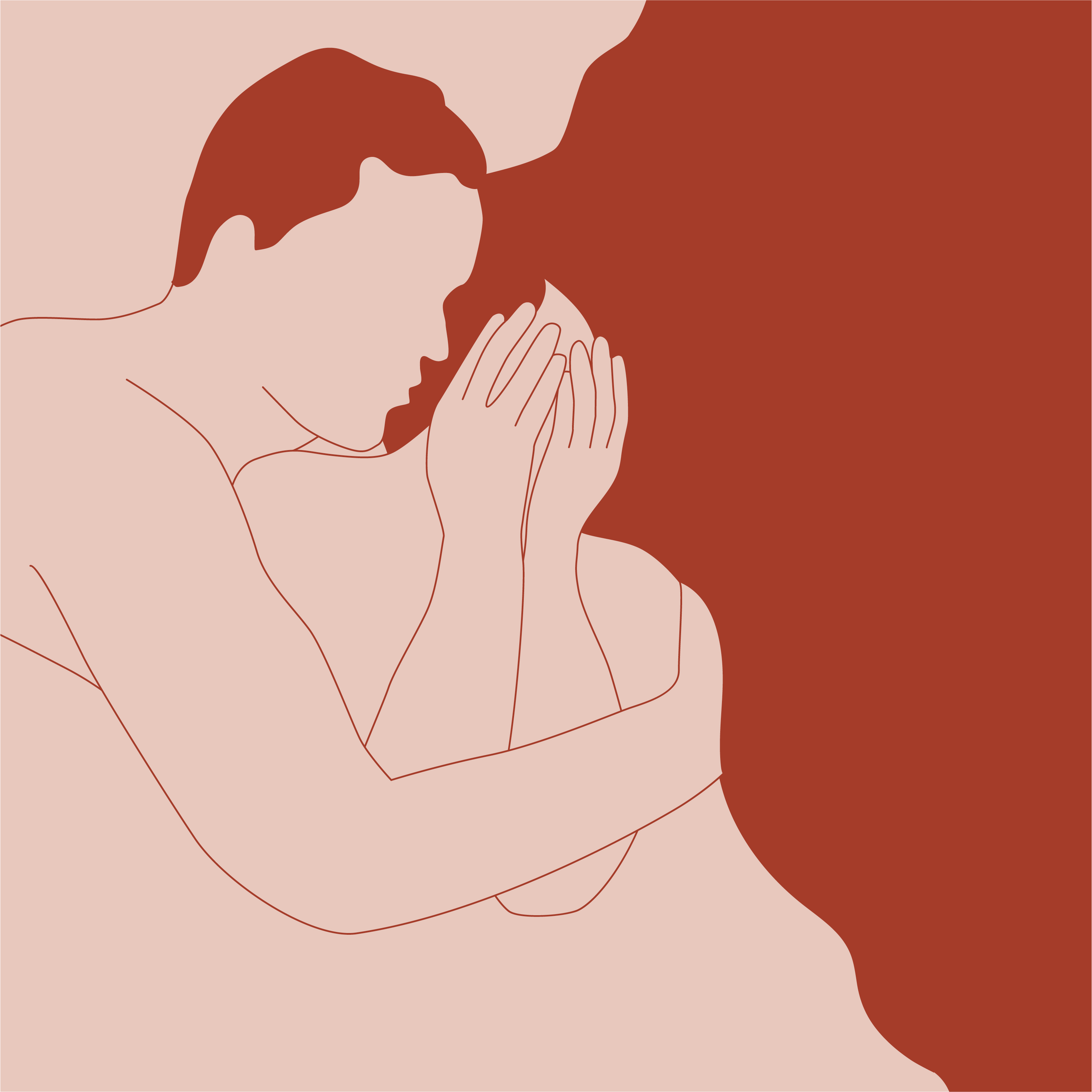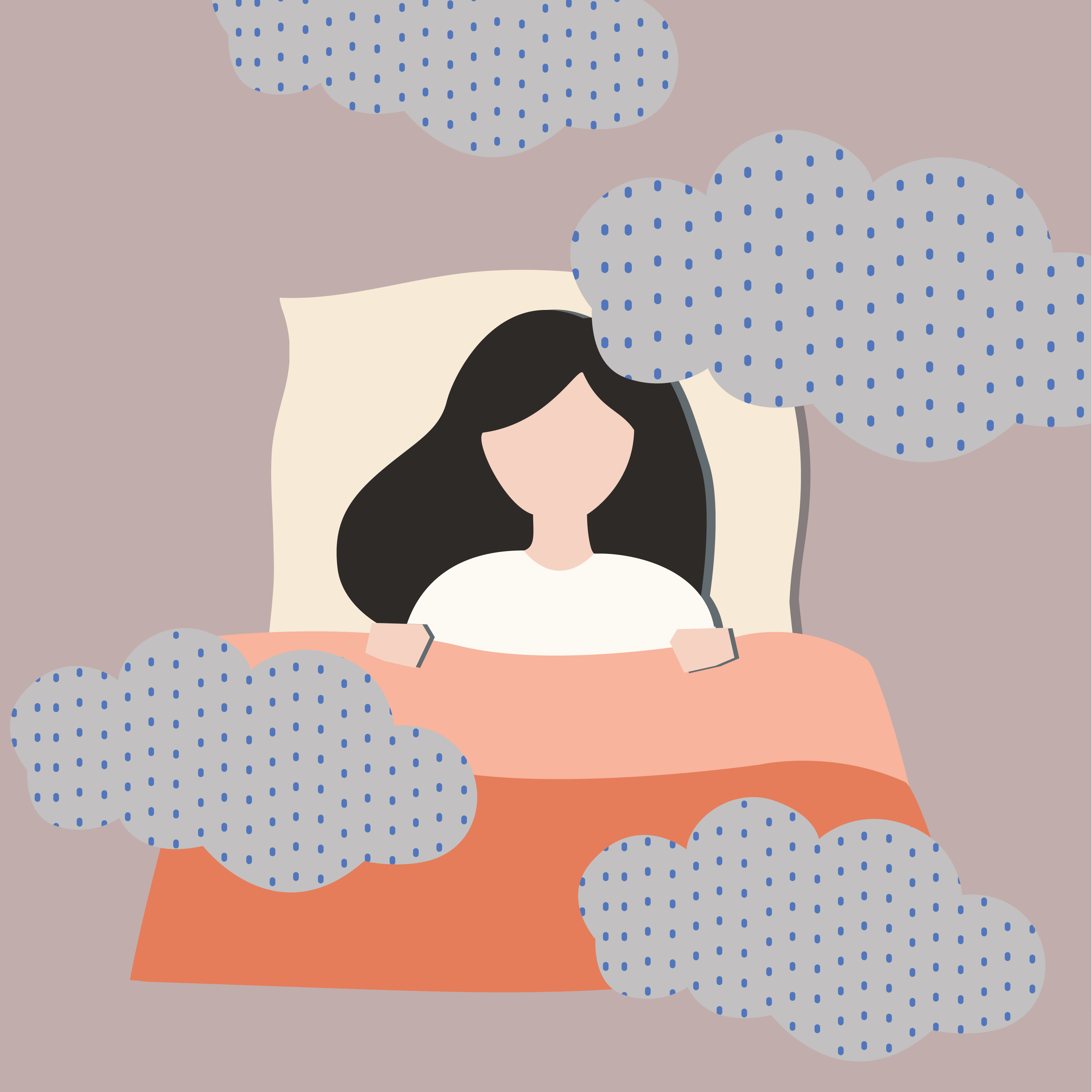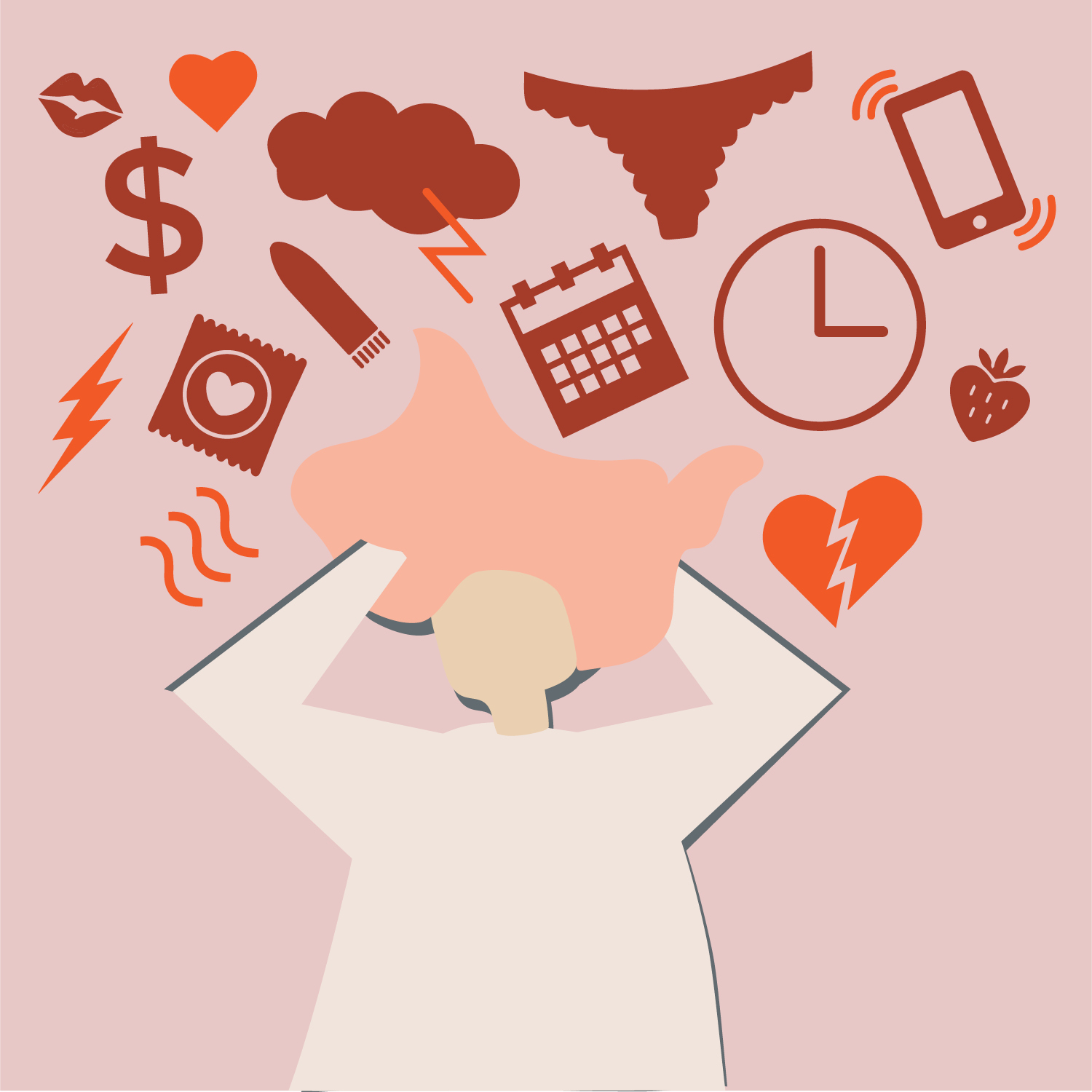Dec 10, 2022
LIVING WITH FIBROIDS
When it comes to our reproductive health, many of us are aware of the warning signs to keep an eye out for. But how much do you know about the often asymptomatic occurrence of fibroids?
Despite affecting 7 out of 10 women by the age of 50, conversations around fibroids often don’t occur until later – so it’s completely understandable if you haven’t heard much about the topic!
Today on the blog, we’re taking a deeper dive into the world of fibroids, what to look out for, and how to comfortably live with the diagnosis.
WHAT ARE FIBROIDS?
Simply put, a fibroid is a common, non-cancerous growth that can form in and around the muscular wall of the uterus (the womb). Fibroids can vary in both number and size; there could be one or many of them present, and they range from the size of a seed, all the way up to the size of a melon.
Fibroids are most commonly experienced by women in their 40s and early 50s, and only around 20-30% will encounter any symptoms from them. They’re rarely seen pre-puberty or post-menopause, with most pre-existing fibroids stopping growth, and sometimes even shrinking, after menopause.
Even with the amount of research that has been put into fibroids, it’s not known exactly why they do form – but the important takeaway is that there are plenty of treatment options available, in both the medical and natural spaces.
THE SYMPTOMS AND RISK-FACTORS
As we mentioned, many women don’t actually experience any symptoms at all from fibroids! But for those who do, it can depend on the location, number, and size of fibroids present. Common symptoms can include:
- A heavy flow or prolonged period
- Intense period pain
- A deficiency in iron or anaemia, which can lead you to feel tired or dizzy
- A sensation of pressure on the bladder that can cause frequent urination
- Lower back pain
- Swelling or bloating in the abdomen
- Pain during sex
Some risk-factors that have been linked to developing fibroids are:
- Age; risk increases later into your reproductive years
- An earlier-than-usual first period
- Obesity and high blood pressure
- Family history of fibroids
- Being affected by PCOS (polycystic ovary syndrome)
- Never having given birth before
UNDERSTANDING THE DIAGNOSIS AND TREATMENT OF FIBROIDS
There are a few different ways to diagnose fibroids, but normally, your GP will feel for them during a standard pelvic exam. From here, they may conduct an ultrasound or other tests (like an MRI or hysteroscopy) to confirm the placement, number, and size of the fibroids.
Due to the slow-or-no growing nature of fibroids, and the fact that they typically don’t lead to any symptoms or health issues, treatment may not be required. For concerning cases, where symptoms are severe or your health is at risk, there are, of course, effective treatment plans that your GP will take you through (including medication, or in some cases, surgery).
LIVING WITH FIBROIDS – HOLISTIC TREATMENT AND MANAGEMENT
Along with the medical treatments recommended to you by your GP, taking a multi-pronged approach with natural treatments and lifestyle changes can be an effective way to tackle fibroids, relieve symptoms, and prevent them from reoccurring. If you’ve been diagnosed with fibroids, it’s a great idea to get the all clear from your GP to follow some holistic approaches, including:
FOCUSING ON NUTRITION AND DIETARY CHANGES
As one of the most important factors to your overall health, eating wholesome and nutritious foods can help you to maintain a healthy weight, reducing your risk of developing fibroids, and even easing certain symptoms. Increasing your intake of fibrous, unprocessed, nutritious whole foods can help to keep you fuller for longer, balance your hormones, reduce inflammation, and ultimately assist in lowering your risk of developing fibroids. Think brightly coloured fruit and vegetables, whole grains, brown rice, lentils, beans, quinoa, and herbs.
Since refined carbs and sugary foods can raise blood sugar levels, consuming an excessive amount of these has the potential to trigger or worsen fibroids. It’s best to avoid or minimise these foods in your diet, including white rice/pasta/flour, soda and sugary drinks, corn syrup, sugary baked goods, potato chips, and crackers. Drinking alcohol has been found to also increase risk, along with eating too much red meat.
VITAMINS AND SUPPLEMENTS
It’s a good idea to have a discussion with your GP about the different types of vitamins that may help to slow down the growth and size of fibroids. Low amounts of vitamin D and A, for instance, have been linked to an increased risk of developing fibroids. Additionally, there are vitamins that can help with the symptoms of bloating and cramping, such as vitamin B-1 and B-6, vitamin E, magnesium, and omega-3 fatty acids. Many of these can be found in the wholesome foods we mentioned above, as well as in supplements.
HERBAL REMEDIES AND ACUPUNCTURE
Traditionally used in Chinese medicine, a combined treatment of herbal remedies, along with acupuncture, may help with balancing your hormone levels, treating fibroids, and reducing pain-related symptoms. Since herbal remedies can be quite potent and can potentially interact with other medications, it’s best to consult your GP prior to starting any new treatments.
OTHER NATURAL REMEDIES
Managing stress with heat packs, hot baths, massage therapy, herbal teas, yoga and regular exercise can assist with managing fibroid pain in the short term.
Vaginal health can be complex! If you suspect that you have fibroids, we recommend making a trip to your GP ASAP and exploring the many treatment options that are available to you. As with most things we face in life, a multi-pronged approach is often the best route to take!
Blogs

Jun 08, 2022
EXPLORING PERIOD CARE IN CULTURES AROUND THE WORLD
Our TOM Talks panelist Sabina McKenna explores how different cultures around the world approach period care.
Read More
Jun 08, 2022
STOP APOLOGISING FOR HAVING YOUR PERIOD
Our TOM Talks panelist Mel Mason talks about the importance of not apologising for having your period.
Read More
Jun 07, 2022
STRESSED? NOT SLEEPING? TRYING TO CONCEIVE?
TOM Talk's panelist Georgia Hartmann discussed the links between stress, sleep and fertility.
Read More
Jun 07, 2022
STRESS AND HOW IT AFFECTS YOUR SEX DRIVE
Certified sex coach Georgia Grace is here to unpack the link between stress and sex.
Read More